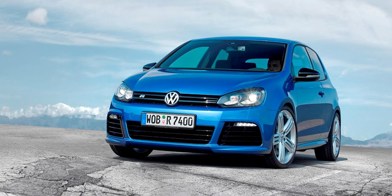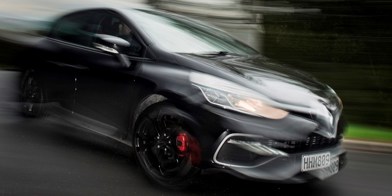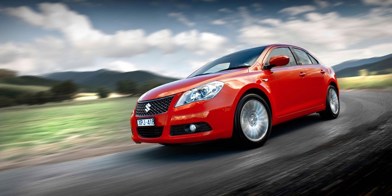Here’s an easy solution for the problem du jour of making electric cars sexy to plug-in sceptics: just make sure the technology comes in a car that’s sexy to start with.
The all-new 208 GT is one of the best-looking Peugeot small cars in a long time: pert, perfectly proportioned and a great blend of cuteness and aggression in the details. If you see a dash of classic 205 GTi in the shrink-wrapped surfaces and prominent C-pillar badge, that’s quite deliberate.
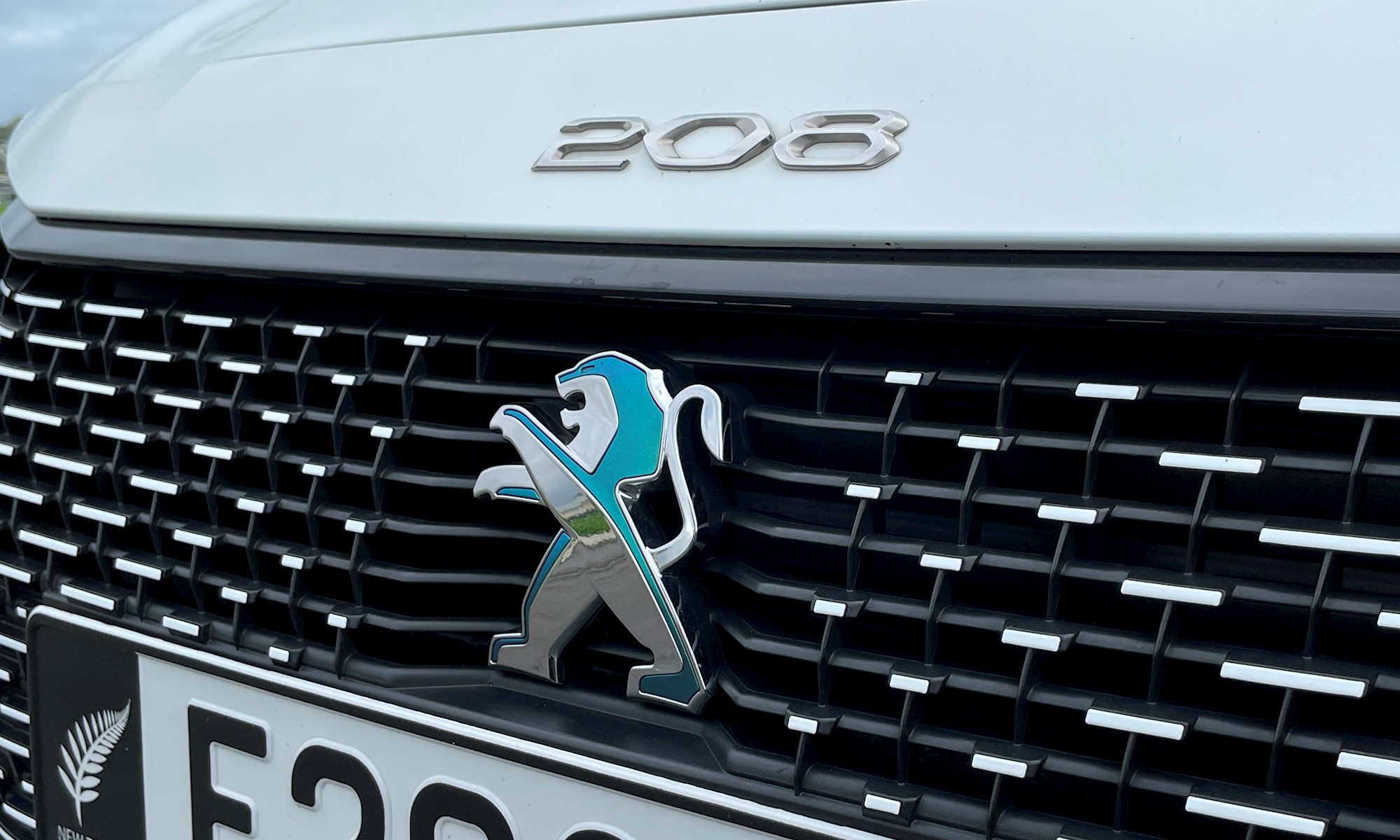
There’s a conventional petrol 208, but this is the e-208: the pure-electric version. You’ll be hard pressed to pick one from the other, because this is supposed to be a truly mainstream Battery Electric Vehicle (BEV). The grille is blanked off and has flecks of body colour… but it still looks like a grille. Look closely and the Peugeot badges have a hint of blue in the e-version; look even more closely and you might spot that the pillar badge is actually an “e” on the BEV (it says “GT” on the petrol model). BEV is the new normal for the 208.
Another key thing is that the 208 platform was designed for electrification from the start. So Peugeot has utilised every knook of the car’s structure for battery space; it’s separated into three main sections, with one longitudinal lump behind the front axle/electric motor, a transverse section underneath the front seats and the largest section just ahead of the rear axle, allowing for a rear-occupant “foot garage”. Like a Porsche Taycan.
The upshot is no compromise in passenger or luggage space (300 litres) compared with the petrol 208 and a generous battery capacity for a city BEV. While rival models like the Mini Electric and Mazda MX-30 make do with less than 35kWh, the Peugeot packs 50kWh – enough for a claimed range of nearly 350km and an easy real-world 300km.
To view all Peugeot hatchbacks listed on DRIVEN, click here
While there’s plenty of power in the argument that urban BEVs don’t actually need big batteries, it’s also a fact that a generous range will help get BEV first-timers on board.
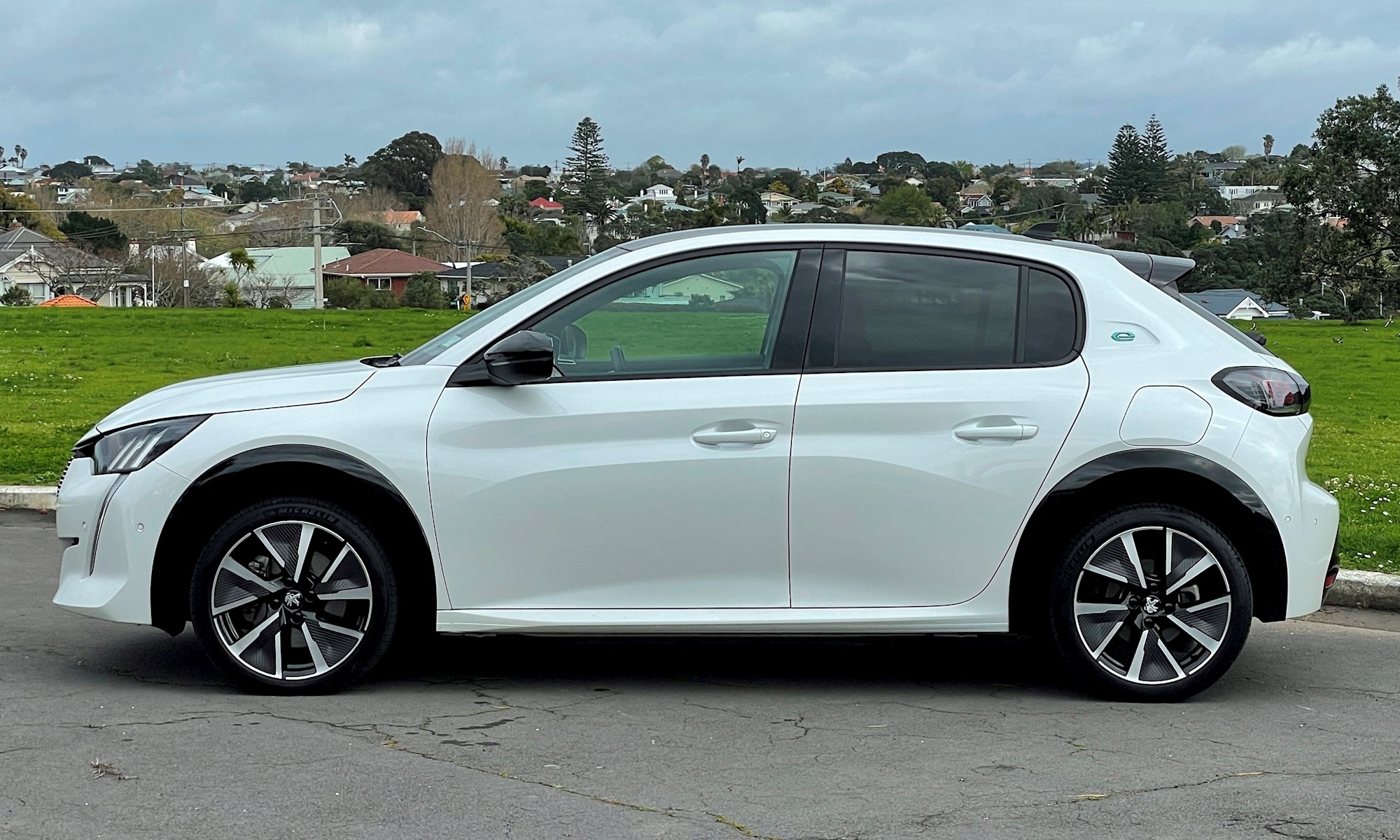
Batteries cost of course, which is why the e-208’s trump card might be price. Peugeot New Zealand has an allocation of e-208s for 2021 at $59,990, which makes this a $51,365 proposition after the Government’s $8625 BEV rebate. It’s still expensive compared with the $37,990 208 petrol, but there’s a financial argument to be made if you consider longer-term running costs (around $8 for a “fill” at home) and likely residual value.
Money is not the only impetus to go BEV, of course. Case in point: this is also the fastest 208 you can buy, with 0-100km/h in 8.3 seconds. Okay, that’s not exactly hot hatch fast; but when a proper 208 GTi comes along, we’re betting it’ll be based on this BEV.
As it stands, the e-208 GT is calibrated to accelerate in a very linear fashion, so it doesn’t feel too different to an Internal Combustion Engine (ICE) vehicle. It’s still pleasingly perky away from the lights, but it won’t slam you back in the seat.
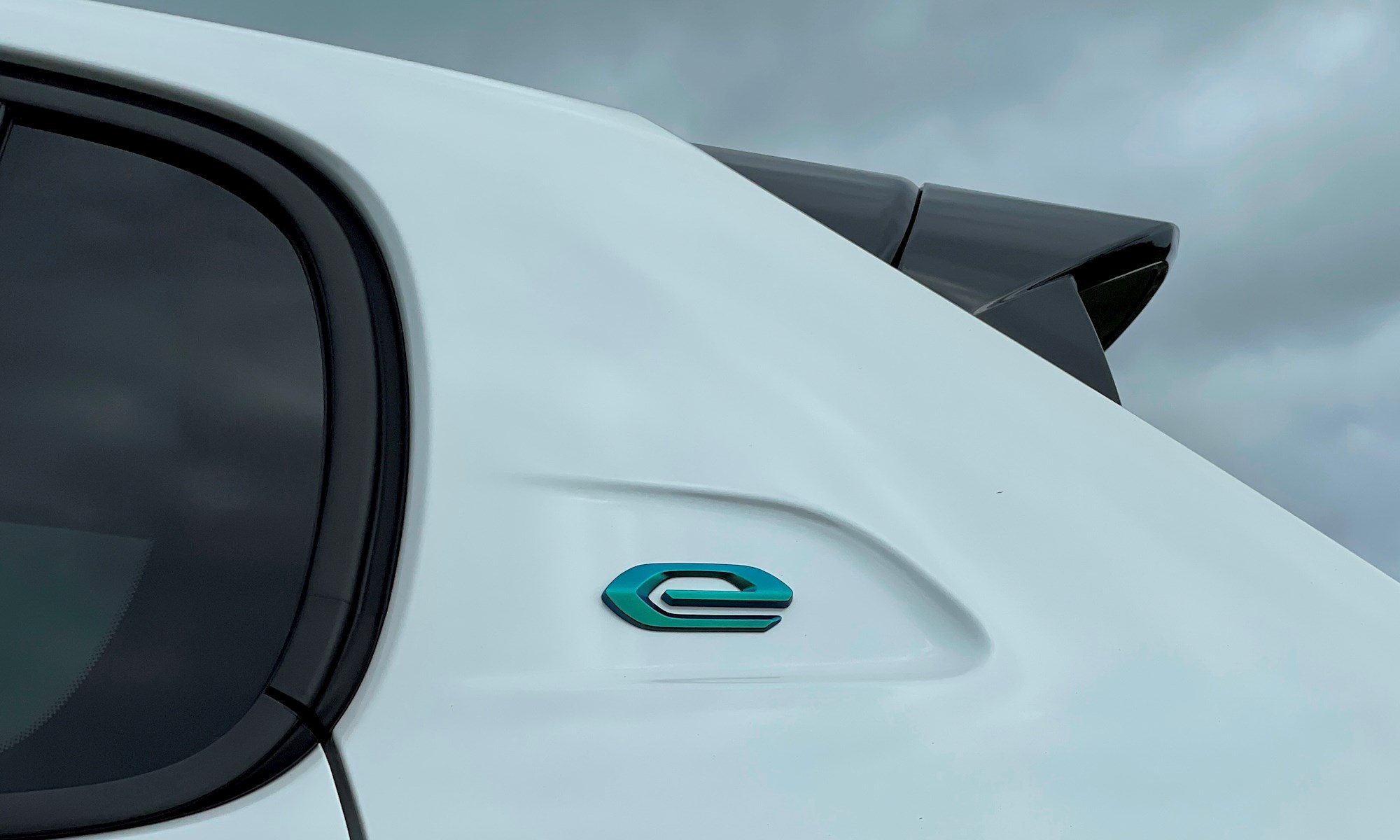
Nor does it go big on the “one pedal driving” function that’s a characteristic of many BEVs, where the regenerative function of the electric powertrain is strong enough to brake the car when you lift off the throttle. The e-208 simply coasts like an ICE car, although you can dial up a bit more regen with the drive modes.
Speaking of which: you need to be in Sport to get the full 100kW, so there’s a noticeable bump in power when you hit the button. But I also spent a fair bit of time in the Eco setting for urban driving, which reduces performance but also gives you another 15 per cent range.
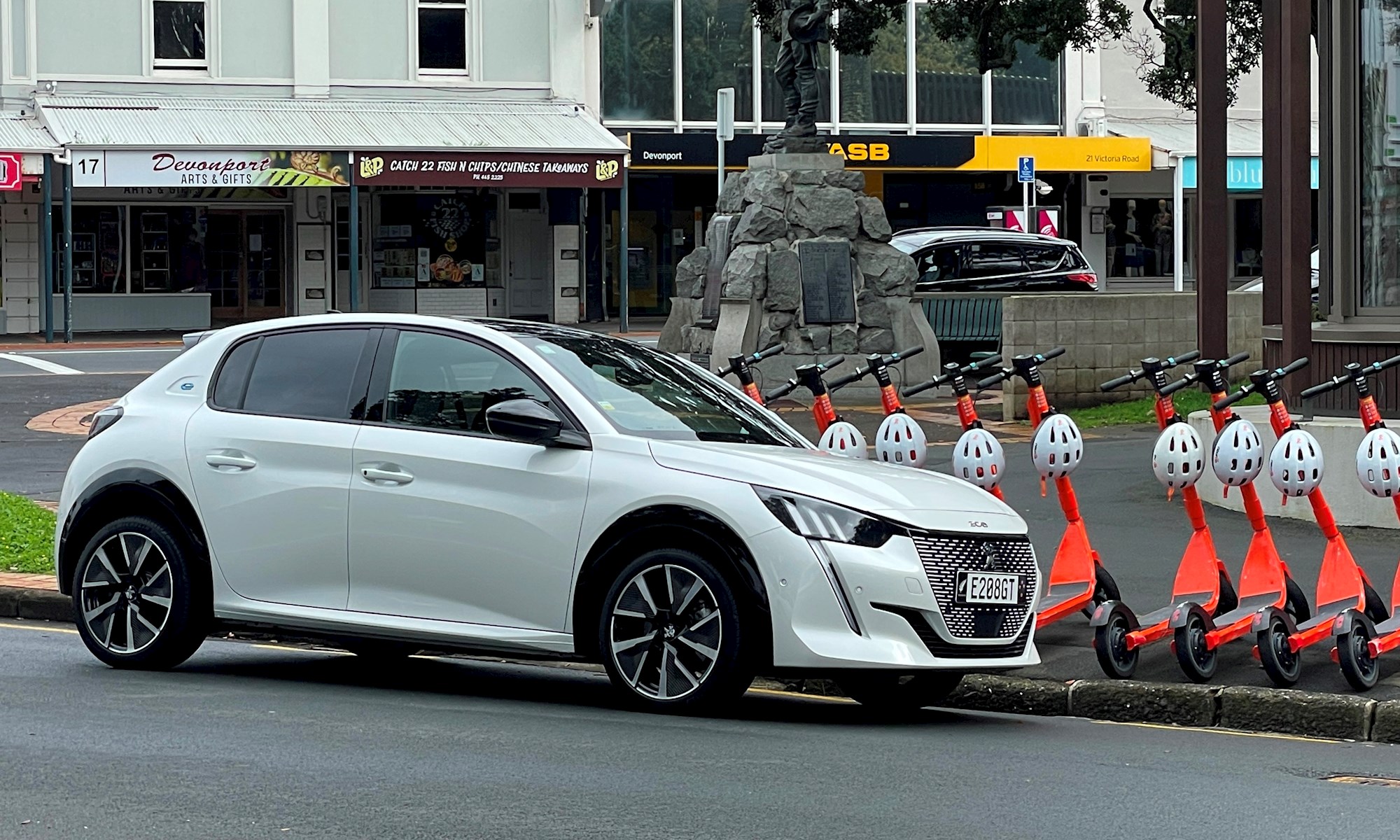
The e-208 is built for comfort rather than speed. The batteries add 300kg to the car’s weight, but the centre of gravity is still very low - so keep it smooth and the little Peugeot feels soft but fluid in the corners... like little Peugeots always used to.
Throw it around and you soon find it feels ponderous as the inconsistent steering and chassis battle with the extra bulk.
The e-208 is not completely devoid of idiosyncrasy; but any weirdness is Peugeot-weirdness rather than BEV-specific. The e-208 has the brand’s latest “i-Cockpit” cabin design, with the steering wheel set low, with 3D-effect main instruments set high. I rather like it, but it all takes some getting used to.

There’s no denying the premium feel. Peugeot is a mainstream brand, but the quality of the cabin in the e-208 is certainly comparable to the likes of Audi, BMW and Mercedes-Benz small cars.
We’re less keen on the amount of time you have to hold the start/stop button to make anything happen. It’s infuriating; it’s also very much a Peugeot thing, although it seems even worse in the e-208.
But if you’re a city-car buyer looking to go pure-electric, the e-208 is a compelling package with a lot of polish.
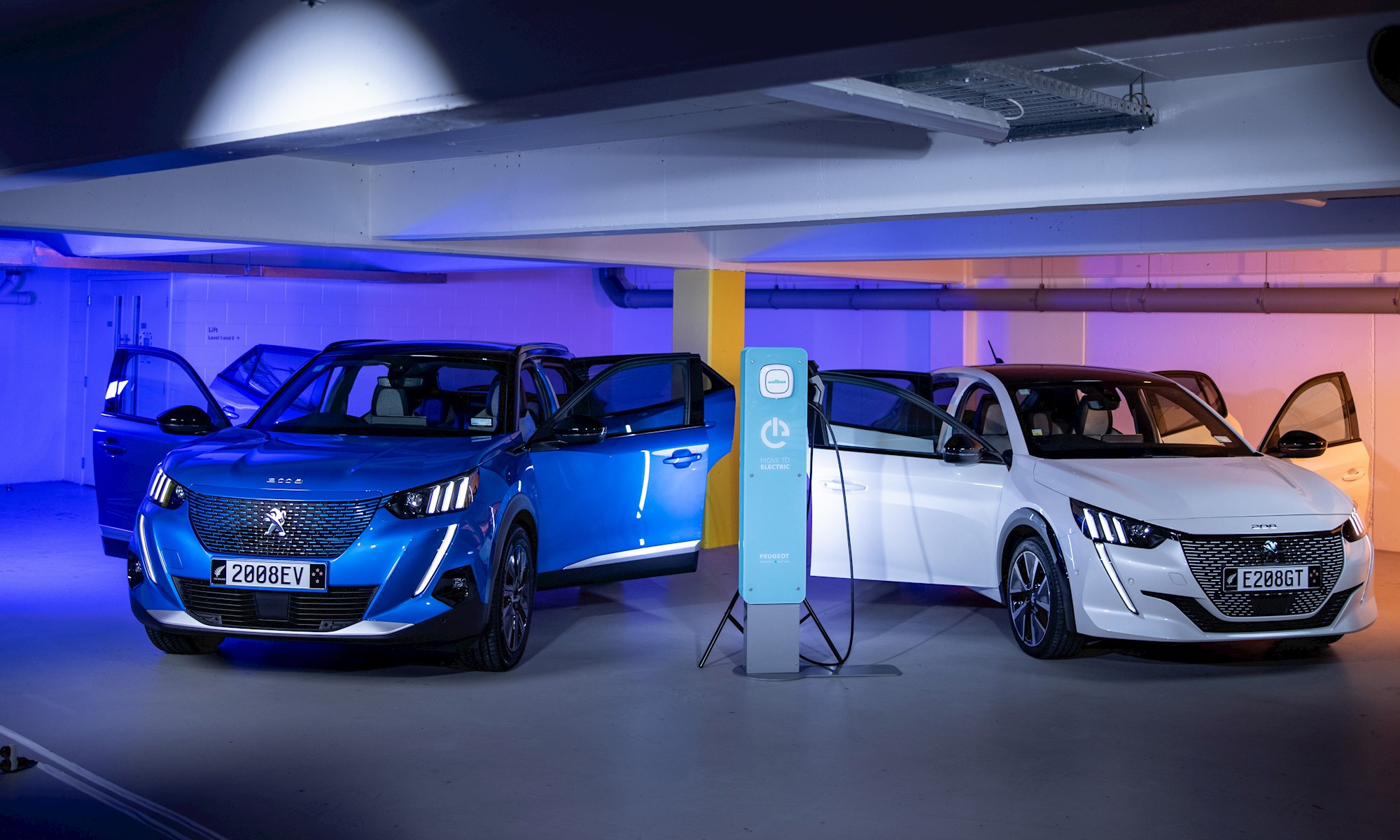
The most obvious rival is of course another French car: Renault’s recently revised Zoe, which serves up 52kWh/395km. We can’t offer a verdict on that as we haven’t driven it, except to say it offers more range but it’s also more expensive at $63,900 for the 80kW version (or $65,990 if you want to match the Peugeot’s 100kW motor).
There’s also a $69,990 BEV version of the larger 2008 SUV (above), which you might assume would be more popular than the e-208 hatch because we’re such an SUV nation. But apparently early orders are favouring the smaller/lower model, which proves it’s a lot of quality BEV for your buck.
PEUGEOT e-208 GT
ENGINE: Single electric motor with 50kWh lithium-ion plug-in battery
POWER: 100kW/260Nm
GEARBOX: Single-speed automatic, FWD
POWER CONSUMPTION/RANGE: 15.9kWh/100km, 349km
PRICE: $59,990 ($51,365 with Clean Car Discount)














